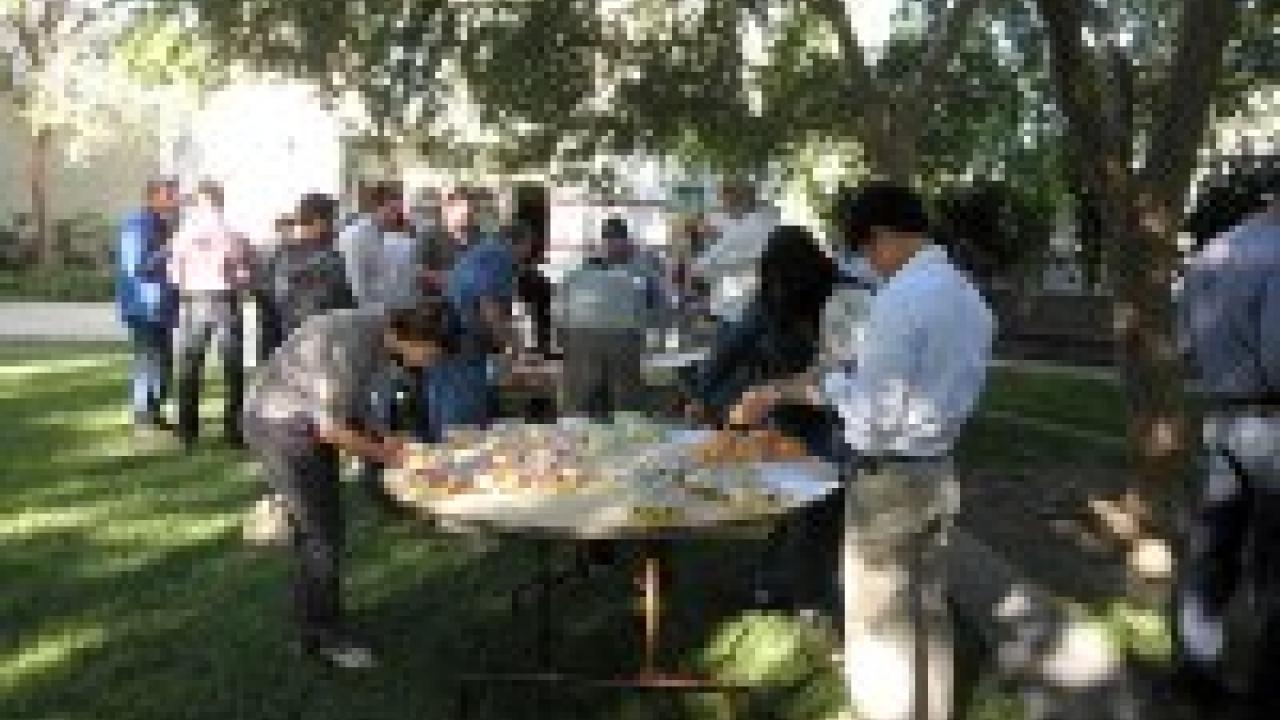
July 10, 2014
You are here: Home / News / Publications / Currents / 2014 /
July 10, 2014
Jul 08, 2014 — John Stumbos
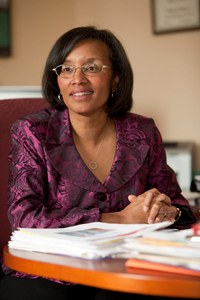 A Message from Dean Helene Dillard: CA&ES Faculty Vital to California Water Challenges
A Message from Dean Helene Dillard: CA&ES Faculty Vital to California Water Challenges
The top concern for agricultural stakeholders, environmentalists, and many other Californians right now is water. As experts weigh in on the drought, many faculty members from our college are providing science-based information to help the state address water resource challenges.
At a University of California “Drought Science, Policy and Management Summit” held in Sacramento in April, our college faculty contributed to discussions on the economic effects of drought, its impact on agriculture and endangered species, as well as water management and water policy in the state.
Cooperative Extension specialists based in our college are contributing to an online seminar series sponsored by UC ANR and the California Department of Water Resources. Our experts provide insight on groundwater, water management strategies for specific crops, detecting water stress in crops, and other topics as well.
Every day, our college faculty, staff, and students conduct research that will help Californians mitigate the effects of the current drought and help prepare the state for future water shortages due to climate change and variations in the availability of water.
At the multidisciplinary UC Davis Center for Watershed Sciences, scientists from our college collaborate with experts from engineering, geology, and other departments on water policy issues. Faculty from the Department of Agricultural and Resource Economics analyze the economic impact of the drought on California agriculture. Others assess the Sacramento–San Joaquin Delta—the major supply of freshwater for the state—for ways to ensure a stable water supply for agriculture and urban areas while maintaining a balanced and healthy environment.
Another area of exploration is more efficient use of water in the processing of food and beverages. At the Robert Mondavi Institute for Wine and Food Science, our food processing pilot plant allows food scientists to test ways to process fruits and vegetables using less water. Our Teaching and Research Winery and the adjoining Jess S. Jackson Sustainable Winery Building have made our facility the most water-efficient winery ever built, modeling water-saving techniques for the California wine industry.
In plant sciences, we have experts who help agricultural stakeholders manage water in ways that benefit agriculture and rangeland, as well as wildlife and ecosystems. Rice farmers are providing wetland habitat for fish and waterfowl. Ranchers are adopting techniques developed by UC Davis scientists to help protect water quality on rangeland and promote herd sustainability. In addition, we have plant scientists who are breeding drought-resistant crop varieties and are exploring the fundamental science behind drought and salinity resistance in plants.
Our irrigation specialists in the Department of Biological and Agricultural Engineering and the Department of Land, Air and Water Resources conduct research that helps make optimal use of water for agriculture, which utilizes approximately 80 percent of the developed (managed) water supply in the state. Our groundwater experts examine the impact of agricultural practices on groundwater and the effects of pumping groundwater to make up for shortages of surface water deliveries. The goal is not only to identify the problems, but also to develop solutions for these critical issues.
We also have wildlife biologists and hydrologists who contribute research on the restoration of rivers and the management of water flow for endangered fish and wildlife, as well as the health of the overall ecosystem. Experts in the Department of Land, Air and Water Resources are tracking hydrology shifts in the state that are due to climate variability and changes in water availability.
In the Department of Environmental Science and Policy, experts analyze the risks of wildfire vulnerability, particularly with the higher temperatures associated with climate change. To conserve the state’s biodiversity, our scientists are helping resource managers develop adaptation strategies to reduce the risks of climate-driven extinction of species.
Our California Center for Urban Horticulture provides homeowners and others with information on drought-resistant landscaping and efficient irrigation. This program is conducting a series of workshops throughout the state this summer to show landscape professionals how to save water by making improvements to irrigations systems.
A safe and reliable water supply is vital to agriculture, the environment, and the people of California. Our faculty, staff, and students are vital to California, helping to promote water conservation, preserve water quality, protect watersheds, improve water management and policies, restore ecosystems, and address changes in water availability due to climate change.
Helene R. Dillard
Dean
College of Agricultural and Environmental Sciences
hrdillard@ucdavis.edu
Who
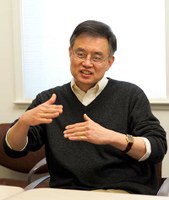 Zhe Chen: Scientific Review Board, Chinese Academy of Science
Zhe Chen: Scientific Review Board, Chinese Academy of Science
Zhe Chen, professor and chair of human development and family studies, has been selected as an overseas member of the scientific review board for the Chinese Academy of Science. The role of this external scientific review board is to provide advice, evaluations, and recommendations concerning scientific strategic plans, research priorities and policies, academic programs, and award programs for the Chinese Academy of Science.
Chen’s research focuses on children’s thinking and learning processes. His work includes three interrelated lines of inquiry: analogical problem solving, scientific reasoning, and microgenetic analyses of strategy acquisition. He teaches courses in early child development, cognitive development, and culture and children’s thinking. Human development and family studies is part of the Department of Human Ecology.
Zhe Chen
530-754-6750
zhchen@ucdavis.edu
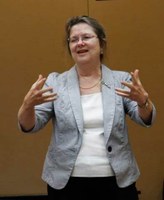 Mary Louise Flint: James H. Meyer Distinguished Achievement Award
Mary Louise Flint: James H. Meyer Distinguished Achievement Award
Mary Louise Flint, a UC Davis Cooperative Extension specialist and associate director of the UC Statewide IPM Program, is the 2014 recipient of the James H. Meyer Distinguished Achievement Award. The award recognizes a distinguished career of achievement by an Academic Federation member. A secondary but important consideration is voluntary service to the campus, UC community, or state, regional, or national bodies.
Flint oversaw development of UC IPM’s highly regarded series of manuals on 15 different agricultural crops; online pest management guidelines; and pest notes for home, garden, landscape, and urban audiences. She is the author of several important books on integrated pest management, including “Pests of the Garden and Small Farm,” “IPM in Practice: Principles and Methods of IPM,” and “The Natural Enemies Handbook.” Flint also developed hands-on train-the-trainer programs for UC Master Gardeners, retail nursery personnel, and landscape professionals.
Meyer, a former CA&ES dean and UC Davis chancellor, was Flint’s father-in-law. “This is a special award for me because of my father-in-law and his strong support for the Academic Federation and the Cooperative Extension specialists, Agricultural Experiment Station researchers, and other non-Senate academics it represents,” she said.
Mary Louise Flint
530-752-0475
mlflint@ucdavis.edu
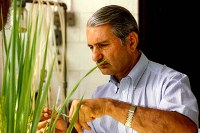 Gurdev Khush: Honorary Doctorate from McGill University
Gurdev Khush: Honorary Doctorate from McGill University
Gurdev Khush, an adjunct professor in the Department of Plant Sciences, received an honorary doctorate degree from McGill University. He is an agronomist who spearheaded a program developing improved rice varieties that were part of the Green Revolution.
In 1967, Khush joined the International Rice Research Institute (IRRI) in the Philippines and was appointed head of the plant breeding division a few years later. He conceptualized and developed a new type of rice with a 20 percent higher yield potential. The adoption of modern varieties has helped double the world’s rice supply and enabled self-sufficiency in most of the major rice-producing countries in the world.
For his contribution to world food security, Khush received the World Food Prize (1996) and the Wolf Prize in Agriculture (2000). Ronald P. Cantrell, former director general of the IRRI, said of Khush: “While his name may have passed the lips of many, his life’s work passed the lips of almost half mankind.”
Gurdev Khush
530-754-5111
gkhush@ucdavis.edu
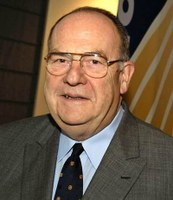 Alex McCalla: Honorary Doctorate from the University of Alberta
Alex McCalla: Honorary Doctorate from the University of Alberta
Alex McCalla, professor emeritus in the Department of Agricultural and Resource Economics, received an honorary doctorate from the University of Alberta. He is an internationally recognized authority on world food policy, trade, and economic development.
A former dean of the College of Agricultural and Environmental Sciences, McCalla is a leading academic in agricultural policy. He also has had a transformative impact on curriculum design and graduate program development. After retirement from UC Davis in 1994, he led a major effort to revitalize the World Bank’s commitment to rural development. He also served as founding dean of the Graduate School of Management at UC Davis.
“Alex McCalla continues to be in wide demand as a consultant and speaker on world food security,” the University of Alberta stated. “The global reach of his contributions to education, public policy, and agricultural development reflect an enduring commitment to reducing rural poverty.”
Alex McCalla
530-752-1529
alex@primal.ucdavis.edu
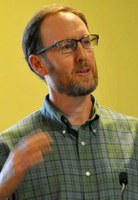 Jay Rosenheim: Excellence in Undergraduate Education Award
Jay Rosenheim: Excellence in Undergraduate Education Award
Jay Rosenheim, a professor in the Department of Entomology and Nematology, has received the 2014 Excellence in Undergraduate Education Award in the College of Biological Sciences from the Associated Students of UC Davis.
Rosenheim teaches "Introduction to Biology: Principles of Ecology and Evolution” (BIS 2B). The course is an introduction to basic principles of ecology and evolutionary biology, focusing on the fundamental mechanisms that generate and maintain biological diversity across scales—from molecules and genes to global processes and patterns.
Jay Rosenheim
530-752-4395
jarosenheim@ucdavis.edu
What
UC Global Food Initiative Launched July 1
University of California President Janet Napolitano on July 1 announced the launch of a UC Global Food Initiative. The initiative, which will include input from all 10 UC campuses and other UC units, will focus on sustainable nutrition and food systems, identify best practices, and share those practices widely with the university, the state, the nation, and the world. The goal is to use the power of UC research, teaching, and extension to improve access to safe, affordable, and nutritious food while sustaining natural resources and to deploy research to shape policy.
UC Davis will co-lead subcommittees on student experiential learning, food and agriculture literacy, leveraging research for policy change, responding to climate change, and sustainable agriculture research. While resources are limited, President Napolitano will support new opportunities for student leadership. UC Davis is embracing this opportunity to highlight and expand leadership within our campus community and to engage across the state and globally. http://dateline.ucdavis.edu/dl_detail.lasso?id=14874
Josette Lewis
World Food Center
530-752-9743
jolewis@ucdavis.edu
Chris van Kessel
College of Agricultural and Environmental Sciences
530-752-7323
cvankessel@ucdavis.edu
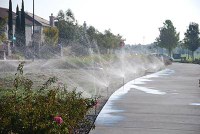 Drought Workshops for Landscape Irrigation Managers
Drought Workshops for Landscape Irrigation Managers
The University of California and the California Department of Water Resources continue their series of workshops to help landscape managers save water by making improvements to irrigation systems. “Get Ahead or Get Parched: Six Ways to Survive the Drought” covers understanding precipitation rates to reduce runoff, improving sprinkler distribution uniformity, improving controller programs during water restrictions, determining application rates of drip and micro irrigation, understanding soil to reduce runoff, and understanding water meters to improve irrigation.
Workshops have been held in Roseville, San Luis Obispo, Walnut Creek, and Fresno. Remaining workshops will be held in:
- Riverside (July 15) in English and Spanish
- San Diego (July 17) in English
- Arcadia (July 29) in English and Spanish
- Irvine (July 31) in English and Spanish
For additional information visit the California Center for Urban Horticulture.
Dave Fujino
California Center for Urban Horticulture
530-754-7739
dwfujino@ucdavis.edu
Arboretum Events
For more information, visit the arboretum website: http://arboretum.ucdavis.edu.
- Camp Shakespeare
Session One (ages 13–17): July 7–18, Monday–Friday; Session Two (ages 7–12): July 21–August 1, Monday–Friday; Session Three (ages 7–12): August 4–15, Monday–Friday
The Davis Shakespeare Ensemble and the arboretum invite campers ages 7–17 to participate in Camp Shakespeare for exciting theater games, acting workshops, and a special camp production. This summer campers will play clowns, villains, and soldiers in one of Shakespeare’s most popular comedies, Much Ado About Nothing. For more details and online enrollment, visit www.shakespearedavis.com.
- Folk Music Jam Session
Fridays, July 18, August 1, 15 and 29, noon–1 p.m., Wyatt Deck
Folk musicians are invited to bring their acoustic instruments and play together informally over the lunch hour. All skill levels are welcome, and listeners are invited.
- Planting with Natives
Sunday, July 20, 10 a.m., Buehler Alumni Center
Take a walking tour of the Mary Wattis Brown Garden of California Natives Plants. Native plants make beautiful and water-conserving additions for home gardens. Get ideas for best natives to plant, and how and when to plant them. For more information and directions, call 530-752-4880 or visit http://arboretum.ucdavis.edu/calendar.aspx.
- Succulents That Sizzle
Saturday, August 2, 10 a.m., Arboretum Gazebo
Succulents are great garden plants that can take the heat. They are surprisingly diverse and beautiful, even in midsummer. For more information and directions, call 530-752-4880 or visit http://arboretum.ucdavis.edu/calendar.aspx.
When
Weed Day: July 10, 2014
The 58th annual Weed Day will be held Thursday, July 10, from 7:30 a.m. to 4:30 p.m., beginning on campus at the Buehler Alumni Center and subsequently heading out for a field tour. Weed Day gives pest control advisers, UC farm advisors, chemical company cooperators, faculty, students, and regulatory officials the opportunity to learn more about current weed science research at UC Davis.
The morning field tour will include herbicide research in annual fruit and vegetable crops, crop safety and herbicide symptomology demonstrations, aquatic weeds, grassland weed invasion and restoration research, and a weed identification challenge. Research presentations will focus on weed science research being conducted off-campus in various agronomic and specialty crops.
For more information, see http://wric.ucdavis.edu and click on Weed Day 2014.
Gale Perez
UC Weed Research and Information Center
530-752-1748
gperez@ucdavis.edu
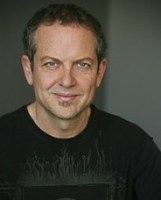 Great Chef Series: September 13, 2014
Great Chef Series: September 13, 2014
The Robert Mondavi Institute for Wine and Food Science will hold its inaugural event in a new series of lectures and demonstrations from world-class chefs on September 13, 2014. The “Great Chefs Series” brings Chef Daniel Olivella for a full day of private kitchen instruction, cooking, great food, fine wines, and lectures. Olivella’s career began in Spain and includes restaurants in San Francisco, Barcelona, Austin, and Palm Springs. In the morning, 24 participants will step into RMI’s Food Innovation Kitchen to cook alongside Olivella. Lunch follows. A paella-making demonstration with Spanish wines takes place in the afternoon. Olivella concludes the day with a lecture in the Silverado Vineyards Sensory Theater.
Registration for the full day is $250; the afternoon lecture and demonstration only is $50. Last day to register online is August 29, 2014.
Stephanie Shimada
530-752-4180
shimada@ucdavis.edu
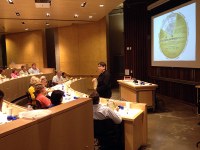 Advanced Sensory Evaluation of Olive Oil: September 16–18, 2014
Advanced Sensory Evaluation of Olive Oil: September 16–18, 2014
The UC Davis Olive Center is holding an advanced course in the sensory evaluation of olive oil, September 16–18 in the Silverado Vineyard Sensory Theater at the Robert Mondavi Institute for Wine and Food Science. The three-day course is designed for producers, buyers, importers, category managers, and anyone wanting to know more about assessing the quality of extra virgin olive oil. It will address official methods of the International Olive Council, as well as protocols used by major food and beverage companies. Course highlights include flights of oils with classic sensory profiles; benchmarks for fruitiness, bitterness, and pungency; intensity scaling of rancid and fusty; grading; a blending workshop; the role of filtration; correlating chemistry and sensory analysis; and pairing olive oil and food. Instructors include professional sensory scientist Sue Langstaff, Olive Center research director Selina Wang, and Olive Center executive director Dan Flynn.
Early-bird registration is $745 until August 16, 2014; $895 thereafter. More information is available at https://registration.ucdavis.edu/Item/Details/121.
Dan Flynn
UC Davis Olive Center
530-752-5170
jdflynn@ucdavis.edu
Program Management for Plant Breeders: September 16–18, 2014
“Program Management for Plant Breeders” will be held September 16–18 in the Bowley Plant Sciences building at UC Davis. The course is designed to enhance the management skills of professional scientists who are leading and directing plant breeding and laboratory programs in modern agricultural research and development programs of agribusiness companies and the public sector.
Early-bird registration is $750 until August 4; full registration is $850. The fee includes course materials and lunch. More information is available from the Seed Biotechnology Center.
Sue DiTomaso
Seed Biotechnology Center
530-754-7333
scditomaso@ucdavis.edu
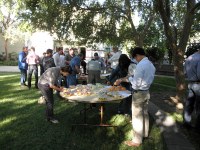 Fresh-Cut Products Workshop: September 23–25, 2014
Fresh-Cut Products Workshop: September 23–25, 2014
The UC Davis Postharvest Technology Center presents a September 23–25 workshop on fresh-cut fruits and vegetables at the Buehler Alumni Center. The 19th annual workshop will include lectures, demonstrations, discussions, and research updates. This workshop is designed for food scientists, food engineers, quality assurance personnel, and new product development staff, as well as representatives of research institutions, the restaurant and institutional food industries, and equipment, packaging, and ingredient suppliers. Fresh-cut products (cleaned, washed, cut, packaged and refrigerated fruits and vegetables) are an important and expanding food category.
The enrollment fee is $1,150 and includes all instruction, course materials, lunches, and morning and afternoon snacks, in addition to an evening networking reception. For more information, visit http://postharvest.ucdavis.edu/Education/FreshCut/.
Penny Stockdale
Postharvest Technology Center
530-752-7672
pastockdale@ucdavis.edu
* * * * * * * * * * * * * *
Visit CA&ES Currents online at http://www.caes.ucdavis.edu/news/publications/currents.
CA&ES Currents, the faculty/staff newsletter of the College of Agricultural and Environmental Sciences at the University of California, Davis, is published monthly. Send news items to editor, jdstumbos@ucdavis.edu.
Editor: John Stumbos
Writing: John Stumbos, Helene Dillard, Robin DeRieux
Editorial review: Ann Filmer, Thomas Kaiser, Robin DeRieux, Christine Schmidt
To be added to or deleted from this electronic newsletter list, please send an e-mail to: caeseditor@agdean.ucdavis.edu.
The University of California does not discriminate in any of its policies, procedures, or practices.
The university is an affirmative action/equal opportunity employer.